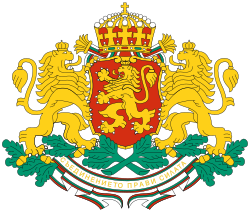| | ||||||||||||||||||||||||||||||||||||||||
17 November 1896 | ||||||||||||||||||||||||||||||||||||||||
All 165 seats in the National Assembly 83 seats needed for a majority | ||||||||||||||||||||||||||||||||||||||||
This lists parties that won seats. See the complete results below.
| ||||||||||||||||||||||||||||||||||||||||
 |
|---|
Parliamentary elections were held in Bulgaria on 17 November 1896 to elect members of the IX Ordinary National Assembly. Despite the fact that the four Liberal opposition factions cooperated and ran on a joint list in many constituencies, the result was a victory for the ruling People's Party. [1] The elections were marred by disturbances, particularly in Sofia. [2]